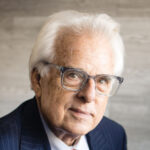The media have become pro suicide. You see this all the time, now. When elderly, disabled, or ill people kill themselves, reports depict the deed as empowering or laudable exercises in personal autonomy.
Latest example: The Australia media has played up an elderly woman — who announced ahead of time she was going to kill herself — and then did the deed. From The Age’s story, “Rational Suicide: Why Beverley Broadbent Chose to Die”:
Beverley Broadbent was not dying of a terminal illness, nor was she depressed or unhappy. But at 83, she wanted to die. After living a rich and satisfying life, the Brighton East woman said the ageing process had come to feel like a disease that was robbing her of her physical and mental fitness. In February, she said she had had enough. “I look well and I walk well so people think I’m fine. But I have so many things wrong with me,” she said. “The balance is gone. It’s taking so much time for me to keep fit to enjoy myself that there’s not enough time to enjoy myself.”
In several interviews with Fairfax Media, Ms. Broadbent said she planned to take her own life so she could have a peaceful, dignified death. She said she did not want her health to deteriorate to the point where she had dementia or found herself in a nursing home with no way out. The environmental activist chose to tell her story because she believed many elderly people wanted to die when they felt their life was complete, but lacked the means to go gently. “I can’t understand why people who really want to can’t have the means to go with the help of a doctor in a dignified manner at the time that they choose,” she said.
This is really shameful, and reminds me of the Belgian joint euthanasia of an elderly couple that their neighbors knew was being planned, yet did nothing. The media knew ahead of time that Broadbent was planning suicide, and saw it merely as a great story — and one that could further the cause of legalizing assisted suicide, which the media tend to support — and not a cause to find her help. And what kind of message does it send to other elderly people who may be experiencing difficulty continuing on? Then, almost as an insult, after describing Broadbent’s suicide as “rational,” they offer a suicide prevention hotline number!
Not only that, but The Age’s story — and so many others like it — violate the Word Health Organization media guidelines on not touting suicide because it leads to copycat deaths.
As I said, the media have become pro suicide — at least for some. This story is just one example.
Author Profile

Latest entries
- BlogJanuary 27, 2015Ready or Not: Here Comes 2015 in Bioethics!
- BlogOctober 20, 2014A Case of Surrogacy’s Gordian Knot
 BlogAugust 19, 2014Transhumanism’s Eugenic Authoritarianism
BlogAugust 19, 2014Transhumanism’s Eugenic Authoritarianism- BlogAugust 13, 2014Suicide Cult Pushes Home Made Suicide Kits

